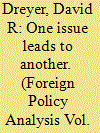|
|
|
Sort Order |
|
|
|
Items / Page
|
|
|
|
|
|
|
| Srl | Item |
| 1 |
ID:
157116


|
|
|
|
|
| Publication |
New Delhi, Pentagon Press, 2017.
|
| Description |
xviii, 222p.hbk
|
| Standard Number |
9789386618146
|
|
|
|
|
|
|
|
|
|
|
|
Copies: C:1/I:0,R:0,Q:0
Circulation
| Accession# | Call# | Current Location | Status | Policy | Location |
| 059278 | 327.51/JAC 059278 | Main | On Shelf | General | |
|
|
|
|
| 2 |
ID:
134188


|
|
|
|
|
| Publication |
2014.
|
| Summary/Abstract |
During the first two decades of the twentieth century, Sinology was known in Vietnam as "Hán h?c ??" (or occasionally as "Trung h?c ??"), and due to the country's long history of Confucian civil service examination, "Hán h?c"/"Trung h?c" was identified with Confucianism and Confucian learning. In order to avoid any grand narrative that overlooks the multifacetedness of reality, writing about the history of Vietnamese Sinology should start with "local narrative," trying to answer a series of "WH-questions" to form a small piece of the jigsaw puzzle. Following this direction, the present paper focuses on the promotion of Confucian ethics in early twentieth century Vietnam through the case of a bulletin called Du h?c báo ??? published under the sponsorship of the Nguy?n court in the protectorate Annam. In order to modernize their "half colonial, half feudal" kingdom technologically without touching the foundation of their political system, the Nguy?n court employed the bulletin as a forum to promote Confucian values interpreted accordingly to Western philosophy and ethics to keep their young elites away from socialist/communist influence during their overseas study.
|
|
|
|
|
|
|
|
|
|
|
|
|
|
|
|
| 3 |
ID:
100264


|
|
|
|
|
| Publication |
2010.
|
| Summary/Abstract |
Rather than competition over one issue or another (such as territory or status) leading to war, in this study it is argued that war is often likely the result of an issue spiral-a dynamic process in which tension increases as multiple issues accumulate. Once an initial issue disagreement is established, the development of enemy images may cause states to view the "other's" behavior and intentions in relation to additional issues as threatening. States may subsequently seek to gain an advantage on a new issue in order to prevent one's competitor from doing so, or in order to gain leverage on other issues. A state's aggressive actions in relation to new issues tend to reinforce their rival's perceptions that the state has aggressive intentions in relation to earlier established disagreements, further increasing tension. Issue accumulation, furthermore, increases the stakes of competition, which increases the likelihood that states will be willing to bear the costs of war seeking favorable issue settlement. As tension heightens and the rationality of engaging in large-scale militarized conflict increases, a state may initiate war if a rival presses its demands on an issue fearing that failure to demonstrate resolve will lead one's competitor to press its demands on other issues as well. An examination of relations between China and Vietnam in the 1970s reveals that an issue spiral, in which one issue led to another and the accumulation of issues contributed to the deterioration of relations, precipitated the 1979 Sino-Vietnamese War.
|
|
|
|
|
|
|
|
|
|
|
|
|
|
|
|
| 4 |
ID:
134187


|
|
|
|
|
| Publication |
2014.
|
| Summary/Abstract |
The intellectual paths of two Vietnamese sinologists, Nguyen Huy Quy and Phan Van Cac, tell a distinctive history of Confucian scholarship in Vietnam. Through their intellectual growth, we hope to show how humanities have survived political upheavals of and between the two countries and returned in the process of national reform. The perseverance of humanist concerns demonstrates the relevance of individual determination in the evolution of Vietnamese scholarship on China, indicating an epistemological agency to transcend politics. Three particular aspects emerge as critical in the evolution of their scholarship: family, travelling, and determination. The mechanisms of historical cycles, strategic silencing, self-learning, and human judgment connect the individual paths to the larger historical context of Vietnamese sinology.
|
|
|
|
|
|
|
|
|
|
|
|
|
|
|
|
|
|
|
|
|